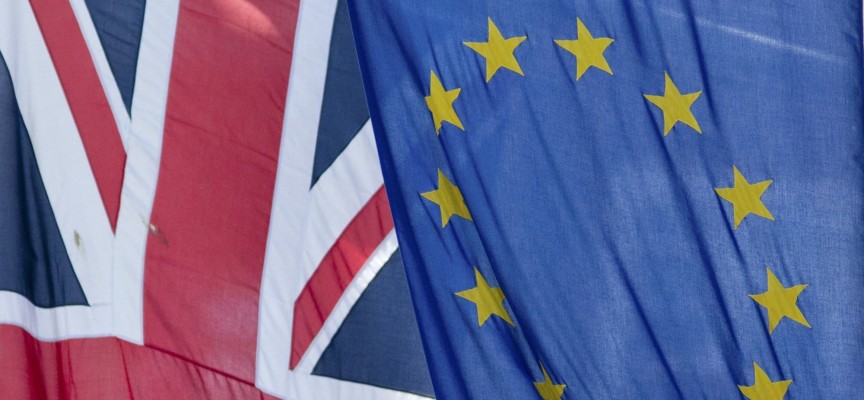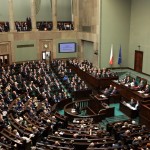At the heart of the matters being hotly debated in the United Kingdom in the period leading up to the referendum on Britain’s continuing European Union membership, is the question: how can ordinary people reconnect with a sense that the EU represents a hopeful and inspiring future for all of them? That this sense has been lost is manifest not just in the uncertainties of Britain’s relationship with the rest of Europe, but in disillusionment and even resentment across the whole Continent.
The EU may be grudgingly accepted as an economic necessity, but it is not popular. A lot of the rhetoric that has been heard so far and will be heard many more times, from both sides of the argument over the UK referendum, presupposes that unpopularity as a fact of life. It depicts the EU as a surly opponent, even an enemy, that has been forced to make concessions to British interests. Whether the concessions are sufficient is where the disagreement lies.
This is disturbing. The foundation of the EU lay in the conviction of a group of European Catholic politicians who had managed to survive the terrors of Nazism and Fascism, that something sound and solid had to be built out of the ruins of war. European civilization had to be revived and renewed. War weariness would not be enough to guarantee future peace: it had failed to prevent the Second World War after the First. There had to be permanent institutions to secure the peace and give Europe a future. The worst of Europe had to be left behind, the best allowed to flourish. These ideals urgently need revival.
Their key proposal initially was to tie the coal and steel industries of France and Germany so strongly together that neither could function separately as the core of a military-industrial complex. The motive was not to make them more profitable – the kind of reasoning that has become standard in the contemporary EU – but to rein them in so that they served the common good. This idea, of economic forces at the service of humanity, was consciously borrowed from the social teaching of Pope Leo XIII and Pope Pius XI. And those principles were applied as the original coal and steel community developed into something broader. It was to be a social as well as an economic project, so that personal wellbeing and financial prosperity advanced together. Europe’s social democrats, not specifically Catholics and in some cases even anticlerical, joined Christian Democrats in seeing the project as compatible with their own ideals.
This critical notion of economic forces serving the common good has become tainted, with profit and growth as the only measures of success. But the legacy of the earlier spirit survives. The language of EU bureaucracy still pays at least lip service to notions of solidarity and subsidiarity as the twin principles of the common good. The defence of human dignity, as enshrined in the European Convention on Human Rights, is still a condition demanded by EU membership.
Yet none of these concepts is alien to the British political tradition. The Convention codified the principles of English Common Law; solidarity is implicit in many British institutions from the National Health Service to the state education system; subsidiarity is what Edmund Burke meant by the “little platoons” at the heart of civil society, where trust, loyalty and ideals of public service are nurtured. They could even be called conservative virtues. But they are fundamentally inimical to dictatorship of left or right, which may be why fascism and communism have never taken root in British soil. And they are worth protecting. In defending British sovereignty, opponents of Britain’s membership of the EU are right to regard them as non-negotiable, even if they are wrong to regard them as under threat.
The founders of modern Europe, men like De Gasperi, Adenauer, Schuman and Monnet, knew all about continental Europe’s demonic side – the spectres of totalitarianism and of ferocious civil war that had disfigured European civilization in living memory. Each European nation still has its demons, the dark side of its national character, as seen in the rise of unreasoning and insurgent far-left or far-right political movements across the Continent. Europe’s post-war Catholic leaders looked to the founding Catholic principles of the European unity project as the anchor against such dangerous currents.
Britain’s eventual presence in their company was to be an extra and important guarantee. Britain already embodied the values they wished to see across Europe, rooted in a long and proud tradition of democracy and the rule of law, which – well known to them as a matter of recent and still vivid experience – the British would rather die for than betray.
Opposition to Britain’s EU membership has lacked a compelling narrative beyond half-forgotten memories of the Spanish Armada and the Glorious Revolution, both of which have lost their original anti-Catholic meaning. The more recent national memory – the Somme, Dunkirk, Normandy, Auschwitz – underlines how dangerous it is for Britain to leave Europe to its own devices once its demons are let loose. Indeed, this turning of the back on Europe is itself the work of the abiding British demon of xenophobic nationalism and isolationism. A prime function of the EU is to subdue national demons like these, then to hold them at arm’s length.
But countering that temptation needs a convincing narrative. To debate the referendum issues strictly in terms of the British national economic interests, as David Cameron has set out to do, is to miss the larger picture. The sense of European unity as a purely technical project is one of the biggest problems. It may scare a few voters his way, but it will not inspire them. To calibrate Britain’s place in Europe in narrow terms of profit and loss is to neglect much more powerful and persuasive arguments. Possibly he does not understand them, being at heart a bit of a Little Englander himself. But they need stating by someone. Jeremy Corbyn is not that someone; Alan Johnson, leading Labour’s pro-EU campaign, might be. But he needs a pitch, a realistic vision of a Europe that works for all its people and persuades them to believe in it. That may not be the Europe of today; but Europe will not become that without Britain.
(source: The Tablet – 25 February 2016)
Al centro delle questioni oggetto di accesi dibattiti nel Regno Unito in questo periodo che precede il referendum sul mantenere o meno l’adesione della Gran Bretagna all’Unione europea, c’è una domanda: come può la gente comune recuperare il senso dell’Ue come garanzia di un futuro di speranza e ispirazione per tutti? Che questo senso si sia perso è evidente non solo nelle incertezze del rapporto della Gran Bretagna con il resto d’Europa, ma anche nella disillusione e nel risentimento che attraversa il continente.
Forse l’Ue è accettata a malincuore come necessità economica, ma non è popolare. Molta della retorica che è circolata finora e circolerà ancora per molto su entrambi i fronti della discussione sul referendum nel Regno Unito, presuppone che l’impopolarità sia un dato di fatto. L’Ue è rappresentata come un avversario scontroso, addirittura un nemico, che è stato costretto a fare concessioni agli interessi britannici. Il disaccordo si gioca sul punto se le concessioni siano sufficienti.
Questo è irritante. Per quel gruppo di politici cattolici europei sopravvissuti ai terrori del nazismo e del fascismo la fondazione dell’Ue era necessaria per costruire qualcosa di solido e robusto sulle rovine della guerra. La civiltà europea doveva essere rinnovata e rilanciata. La stanchezza per la guerra non era sufficiente garanzia per un futuro di pace: non era riuscita a evitare la seconda guerra mondiale dopo la prima. Ci dovevano essere istituzioni permanenti che assicurassero la pace e dessero all’Europa un futuro. L’Europa peggiore doveva essere lasciata alle spalle, alla migliore bisognava permettere di crescere. Ora quegli ideali hanno urgente bisogno di nuovo vigore.
Inizialmente la proposta fu di legare le industrie del carbone e dell’acciaio di Francia e Germania così fortemente le une alle altre in modo che nessuna delle due potesse funzionare autonomamente come nucleo di un complesso militare-industriale. L’obiettivo non era di renderle più redditizie – il tipo di ragionamento che è diventato la norma nell’Ue contemporanea – ma di controllarle e renderle utili a un bene comune. Questa idea, delle forze economiche al servizio dell’umanità, era stata consapevolmente mutuata dalla dottrina sociale di Leone XIII e Pio XI e fu attuata, mentre l’originaria comunità del carbone e dell’acciaio si sviluppava in qualcosa di più ampio. Doveva essere un progetto sociale, oltre che economico, in modo che il benessere personale e la prosperità economica avanzassero insieme, al punto che i socialdemocratici d’Europa, non necessariamente cattolici e in alcuni casi anche anticlericali, si unirono ai cristianodemocratici, vedendo il progetto compatibile con i propri ideali.
Questa nozione critica delle forze economiche al servizio del bene comune è stata contaminata da profitto e crescita come uniche misure del successo. Ma l’eredità dello spirito iniziale sopravvive. Il linguaggio della burocrazia europea rende ancora un tributo, almeno a parole, alle nozioni di solidarietà e sussidiarietà come principi gemelli del bene comune. La difesa della dignità umana, come sancito dalla Convenzione europea dei diritti dell’uomo, è ancora una condizione richiesta per l’appartenenza all’Ue.
Nessuno di questi concetti è estraneo alla tradizione politica britannica. La Convenzione ha codificato i principi della common law inglese; la solidarietà è implicita in molte istituzioni britanniche, dal Servizio sanitario nazionale al sistema d’istruzione statale; la sussidiarietà è ciò che Edmund Burke intende per “piccoli plotoni” al cuore della società civile, dove si radicano la fiducia, la lealtà e gli ideali di servizio pubblico. Potrebbero anche essere chiamate virtù conservatrici, fondamentalmente ostili a qualsiasi dittatura, di sinistra o di destra, motivo forse per cui il fascismo e il comunismo non hanno mai messo radici in terra britannica. E vale la pena proteggerle. Nel difendere la sovranità britannica, anche gli oppositori all’appartenenza della Gran Bretagna all’UE hanno ragione a considerarle come non negoziabili, ma è sbagliato considerarle in pericolo.
I fondatori della moderna Europa, uomini come De Gasperi, Adenauer, Schuman e Monnet, sapevano tutto del lato demoniaco dell’Europa continentale, gli spettri del totalitarismo e della guerra civile feroce che hanno sfigurato la civiltà europea. Ogni nazione europea ha ancora i suoi demoni, il lato oscuro del suo carattere nazionale, come si vede nella rinascita d’irragionevoli movimenti politici di estrema sinistra o di estrema destra in tutto il continente. I leader cattolici del dopoguerra in Europa guardavano ai principi cattolici fondanti del progetto dell’unità europea come l’àncora contro simili correnti pericolose.
L’eventuale presenza della Gran Bretagna nella loro compagnia era un’ulteriore importante garanzia. La Gran Bretagna già incarnava i valori che si voleva vedere in tutta Europa, radicati in una lunga e orgogliosa tradizione di democrazia e di Stato di diritto, per cui – come ben noto per l’esperienza recente e ancora viva – il britannico avrebbe preferito morire piuttosto che tradire.
Nell’opposizione all’adesione della Gran Bretagna all’Ue è mancata una narrativa convincente al di là di memorie quasi dimenticate dell’Armada spagnola e della Gloriosa Rivoluzione, che hanno entrambe perso il loro originale significato anticattolico. La memoria nazionale più recente (Somme, Dunkerque, Normandia, Auschwitz) evidenzia quanto sia pericoloso per la Gran Bretagna lasciare l’Europa a se stessa quando i suoi demoni sono lasciati liberi. E, di fatto, questo girare la schiena all’Europa nasce del persistente demone britannico del nazionalismo xenofobo e dell’isolazionismo. Una funzione primaria dell’Ue è di sottomettere demoni nazionali come questi, e tenerli a debita distanza.
Per contrastare quella tentazione è necessaria una narrativa convincente. Discutere le questioni referendarie strettamente in termini d’interessi economici nazionali britannici, come David Cameron ha iniziato a fare, significa perdere la prospettiva più ampia. Il senso dell’unità europea come progetto puramente tecnico è uno dei problemi più grandi. Può spaventare alcuni elettori, ma non li ispira. Misurare il ruolo della Gran Bretagna in Europa in termini ristretti di profitti e perdite significa trascurare argomenti molto più efficaci e persuasivi. Forse lui non li capisce, essendo lui stesso in fondo un po’ un “inglesuccio”.
Ma c’è bisogno che qualcuno li affermi. Jeremy Corbyn non è quel qualcuno; potrebbe esserlo Alan Johnson, leader della campagna laburista pro-Ue. Ma ha bisogno di slancio, di una visione realistica di Europa che funzioni per tutti i suoi popoli e li persuada a credere in essa. Forse non coincide con l’Europa di oggi, ma l’Europa non la realizzerà senza la Gran Bretagna.
(fonte: The Tablet – 25 febbraio 2016)
Latest posts by EURCOM (see all)
- What are the aims of the European security and defence policy? - 12 aprile 2017
- The Church is for the European project - 28 marzo 2017
- A message for Europe - 28 marzo 2017











